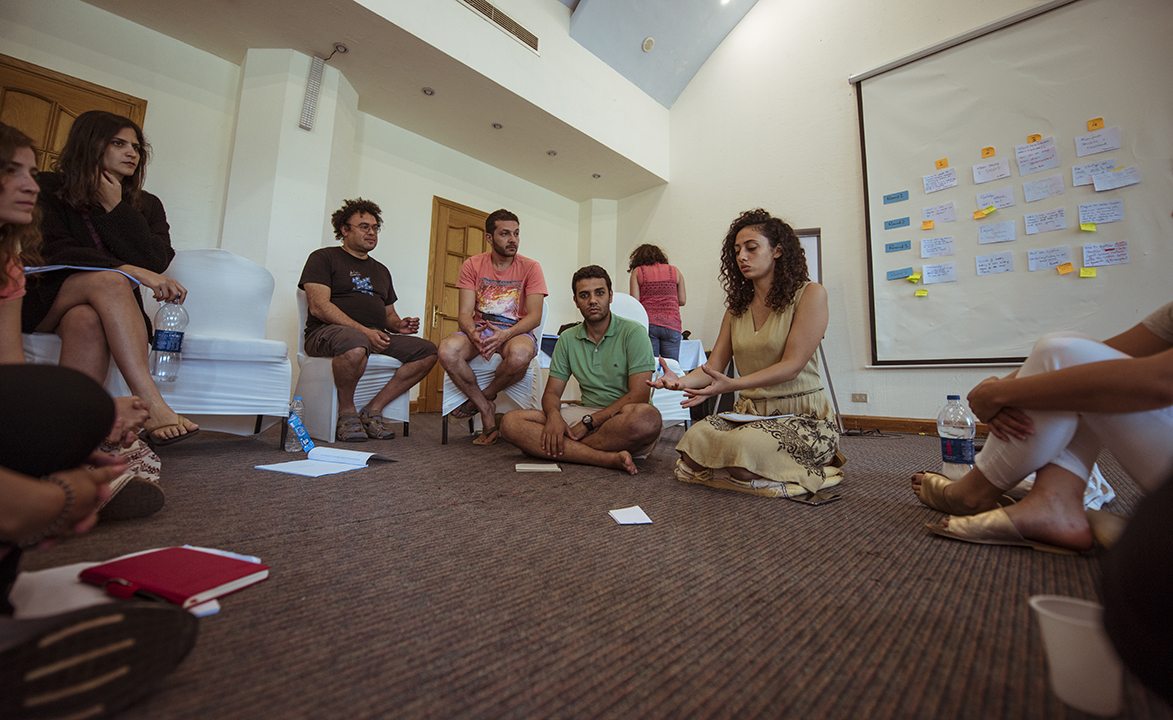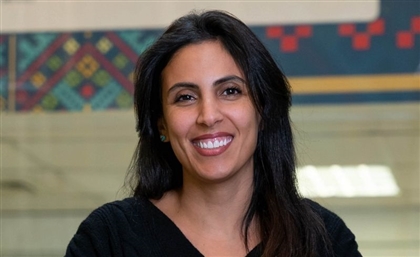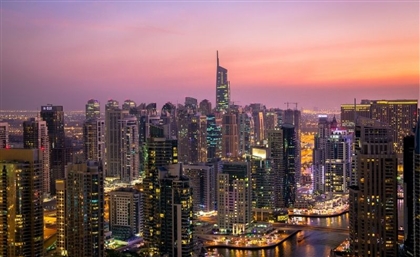15 Things We Learned About The Startup Manifesto, Powered By RiseUp
We spoke with some of the entrepreneurs and experts in the ecosystem who have been working to pull off a directory of records detailing the “grounded experiences” of Egyptian startups.

Entrepreneurs of the world, unite! You have got nothing to lose but brain drain. Every transformation needs a manifesto, and there is no doubt Egypt’s ecosystem is experiencing a vigorous shuffle; with the influx of fresh blood challenging the status quo. People are diverting their attention to settling in a risky work environment, such as a startup’s, as opposed to signing contracts for more secure jobs in the corporate world.
However, to save this transformation from going down the drain, it needs some organising. And that’s where the Startup Manifesto steps in. In August 2017, the project was initiated by RiseUp to put data and figures in order to better connect members of the ecosystem.
1. Motivation
We spoke with the partakers of this Manifesto, such as ElMaqarr’s Abdel Qader Khaled who has been building his company together with his co-founders since 2012. “We haven’t had a similar chance to voice our needs in an essential way that could actually create progress, reassess policies, or change the landscape of entrepreneurship,” he tells Startup Scene. “I feel it’s an honour to be part of this Manifesto and I can see that this initiative is here to last, and is here to make a big difference.”
2. Why does the ecosystem need a Manifesto?
The startup ecosystem in Egypt is fairly fragmented resulting in various entities and participants working towards the same goal yet not together and using different forms and methods, according to Amr Hareedy from Levari, a full-service international law firm in Cairo that has a subsidiary called The Legal Clinicsupporting the Manifesto. “When the Manifesto was introduced it gave the call to action for everyone to come together and work together towards that goal,” says Hareedy. “We, as The Legal Clinic, stepped up to that call and took our role in supporting this great initiative.” Since participating, The Legal Clinic has seen key players join this initiative, entities and participants joining forces, discussing ideas and really working towards the same goal together.
3. What is it exactly?
The Startup Manifesto is a document that provides an overview of challenges faced by different stakeholders of the ecosystem and suggests actionable solutions for everyone to work on based on insights and inputs from the constituents of the ecosystem, meaning that those working on impacting change are the stakeholders of the network themselves.
People can now download the Manifesto document in both Arabic and English directly from the website. The website isn't only a tool to present the Startup Manifesto document, it will also be a tool for ecosystem data collection through surveys. Moreover, the website is a channel for members of the ecosystem to share their thoughts, experiences, and suggestions for solutions publicly.
4. What is the backbone holding the Manifesto?
While the Manifesto’s support system is the entire startup landscape, however the members had their own companies and teams to dedicate their time for. A solitary entity had to exist to ensure that the Startup Manifesto achieves its ultimate objectives by building and ensuring coherence and transparency. This entity, or backbone, is the Startup Manifesto team, composed of two young women; Ghada Saber and Aliaa Abd ElAziz.
Saber has just graduated from Faculty of Economic Studies and Political Sciences, University of Alexandria, but has been working at RiseUp for a year and a half now; first as intern, then a part-timer, and started full timing just last July. “I joined RiseUp as a research intern on a completely different project, but the Manifesto grabbed my attention since day one,” she tells Startup Scene. “I started helping out on small tasks, and ended up co-authoring the Startup Manifesto, and got my title as the Project Associate of the Startup Manifesto in October 2017.”
As a student, Saber tried every possible career choice from research, to banking and all the way to finance and stock exchange. During college, she published a research paper on the importance of SMEs to the Egyptian Economy in the annual economic conference at Bibliotheca Alexandrina.
Abd ElAziz also studied Economics and is now holding a Masters degree in Economics from the American University in Cairo with a published thesis focused on children’s educational attainment in Egypt. “Right after I graduated, I joined RiseUp and worked as Collaborations Manager at RiseUp’14,” she tells Startup Scene. Abd ElAziz wanted to explore the corporate life whilst doing her Masters, so she worked as a marketer in a multinational telecommunications operator. After that, she wanted to experience the development sector, so sje joined a well reputed NGO as Project Manager.
“Currently, I am leading the Startup Manifesto Project at RiseUp, as I found my passion in serving startups and the entrepreneurship ecosystem in Egypt,” she adds. “In addition to that, I am very passionate about fitness, and currently hold an ISSA Strength and Conditioning Certification.”
The Manifesto is powered by RiseUp, yet the ownership is shared; it is a from—the-ecosystem-to-the-ecosystem kind of thing.
5. Objective?

The Startup Manifesto has the ultimate objective of shaping policy for the benefit of the Egyptian entrepreneurship ecosystem, according to the Manifesto team. As a roadmap for change, it targets to be a comprehensive but concise overview of the current policy challenges the Egyptian ecosystem faces while proposing solutions to overcome them. It aims to initiate a continuous dialogue between all relevant stakeholders while being the reference point for corresponding reform.
6. More than a document?
“The Startup Manifesto doesn't stop at being a document;” says Saber. “It is a collective impact initiative that aims at changing the status quo through collective impact (or multi-sectoral partnerships) to create real sustainable impact towards a more developed startup ecosystem in Egypt.”
The Startup Manifesto is home to 11 programmes, each focusing on a specific area or challenge: Advocacy; Human capital; Financial services; Offline/ online platforms; Mentorship and coaching; Decentralization and Localization; Incubators; Support organizations; Impact investment and Purpose driven startups; Research and Data; Linkages.
Each programme has its own team of dedicated ecosystem players working collectively to change the status quo by identifying action points, necessary for the development process, and collaborating towards achieving them.
Abdel Qader describes the Manifesto as a tool for the whole ecosystem to collaborate, putting personal and subjective interests aside. “It’s a way to collaborate for the greater good,” he explains further. “This manifesto, if it works well, can change the path of some industries and can make things much easier for people to start their own businesses.”
The road to building up a company is raided with many obstacles, Abdel Qader argues. “I believe that addressing one obstacle at a time can pave the way for healthier startups, saner startup founders, and definitely a better ecosystem.”
7. Previous events?

“Part of our responsibilities as the Manifesto team, is to maintain continuous communications among the various stakeholders of the ecosystem,” Saber adds. “Communications isn’t for merely bringing the ecosystem together by planning an event. Instead, by doing so, we aim to sustain the momentum of the initiative, plan forward, and achieve real impact.”
So far, the Manifesto hosted some ecosystem gatherings review sessions: The review session took place at AlMaqarr and AUC Tahrir. The sessions were organised for key ecosystem players to go over the first draft of the Manifesto. Attendees reviewed sections based on their experiences, and gave comments on points that should be added to or removed from the document.
In May 2018, all members of the StartupManifesto went on a three-day retreat in Ain El-Sokhna with ElRe7la. After the initial draft was modified through comments collected from the review sessions, it was time to move from literature to real action. The three-day retreat witnessed the development of the 11 programme initiatives along with their key action points or deliverables.
In Ramadan 2018, the Startup Manifesto hosted an Iftar on MO4’s now-known-as Unicorn Garden. The Iftar was an opportunity to onboard more ecosystem members by joining or contributing to one of the Startup Manifesto programmes.
Before officially (and publicly) launching, the Manifesto hosted an invite-only workshop on KARMSolar's rooftop in Zamalek, featuring some keynote speeches and presentations by representatives such as KARMSolar’s CEO Ahmed Zahran, RiseUp's CEO AbdelHameed Sharara and the rest of the core Manifesto team that has been inevitably established during ElRe7la. Later that evening, the attendees split up into smaller circles, each representing one of the 11 Manifesto programme initiatives.
8. Launch?
The Startup Manifesto will be launched in a separate pre-RiseUp Summit event. The day will witness the launch of the Manifesto document, website and the entire initiative. This will mark the first time the Startup Manifesto would be announced to the public, beyond the Manifesto community and the startup ecosystem as a whole. The launch will include Egyptian key players in the ecosystem; explaining the importance of a Startup Manifesto for changing the status quo, along with international experiences of other manifestos around the world.
The launch event promises to answer all questions about this collective endeavor. What worked? What didn't? Why are startup coalitions important today? How can the ecosystem evolve and improve through collective action? “The event is invitation-based, yet we aim to be as inclusive as possible by ensuring a comprehensive, diverse community that will be able to take the Manifesto forward,” Saber explains.
9. Challenges?
As there will never exist a commonly agreed upon opinion or practice, one thing the members could agree upon is that the ecosystem needs to be developed and geared towards its full potential, with the ultimate objective of positioning Egypt as the entrepreneurship capital of the MENA region.
Having various stakeholders onboard, each with their distinct backgrounds and interests, working together towards achieving the same agenda is certainly challenging, but remains doable, Saber contemplates.
“It shouldn’t be expected that partners within each programme will easily agree on common agendas and measurements,” she says. “Indeed, this requires multiple meetings and discussions and dedication of time and effort from all partners.”
10. How do people get on board?
The Manifesto is a collectiveimpact initiative. “Collective refers to being an inclusive initiative; inclusivity is a key pillar of the Manifesto,” Saber explains “The startup Manifesto community has almost no entry barriers, ensuring every voice in the ecosystem is heard.” The Manifesto is for everyone; one should just choose to join one or more of the 11 programme initiatives based on one’s expertise and interests.
11. Only startups?
Not only startups are welcome in this manifesto. Many corpo-governmental names are on board, such as GIZ, USAID, The Micro, Small and Medium Enterprises Development Agency (MSMEDA), and Nahdet El-Mahroussa are there.
Startups on board are Agrimatic, Furnwish, AlMakinah, Almaqarr, Wuzzuf, Publisict INC., Kijami, WeAccept, Yomken dot com, and Chat Bosta. Entrepreneurial communities include RiseUp, ICE Alex, ElRe7la, Ahead of the Curve, The Greek Campus, and Tafra. There are also entrepreneurial support systems such as Levari, Acumen Consulting, Water Consulting, Cairo Angels and Nile University.
12. The Value?

“The biggest value in manifesto is the community itself,” Hoda Hammad of Almakinah tells Startup Scene. “The Manifesto allows us to share knowledge with people and at the same time have someone to go back to from similar-minded people. We sometimes come across problems that we have never encountered before in our professional lives whether on the individual level or on the company level.”
Nodding to Hammad’s analysis, Abdelqader says that until now, it has been a journey of learning and getting to know amazing people. “I’m learning about all the different issues people are facing, even if we’re not facing them in our startup yet,” he says. “I’m getting to socialise and discuss with many stakeholders and seeing great areas of collaboration with each. So far, I think I have gained much more than I gave to the Manifesto.”
13. What do startups give to the Manifesto?
Abdel Qader is part of AlMaqarr Coworking Space and ElRe7la; both startup founders are all part of the manifesto committees either leading or participating in committees. “AlMaqarr hosts the manifesto committee meetings when needed and ElRe7la works very closely with Manifesto team to co-facilitate the big meetups and retreats for the ecosystem.”
The Manifesto is based on the insights and experiences of various members of the ecosystem; mostly depending on the sector they are working with.
14. What is the Manifesto doing in RiseUp?

The Manifesto has so much planned for this year’s RiseUp Summit; from workshops, talks, to satellite events, the Startup Manifesto and Summit integration will cover a wide spectrum of topics, from building a startup culture, to financial alternatives, and all the way to localisation of content as part of grounded experiences.
15. Expansion
The Manifesto acknowledges that Egypt’s startup ecosystem isn’t restricted to the one in Cairo. “There are other smaller, less mature startup communities scattered around the country,” Sabry says. “They function in unequipped ecosystems, leading to lower rates of growth. Geographical disparities are one of the main topics the Manifesto document brings to the table.”
For the next chapter, the Manifesto will be working on embracing the larger ecosystem including Alexandria and Upper Egypt – only as a start. Last August, they conducted a Manifesto roundtable in Alexandria.“We’ll be revisiting Alexandria soon for more insights on challenges and opportunities of the region,” she elaborates. “We are also planning for a bigger Upper Egypt roundtable just after the summit.”
All photos are from the Manifesto's retreat in Ain El-Sokhna with ElRe7la. Courtesy of Startup Manifesto.






















